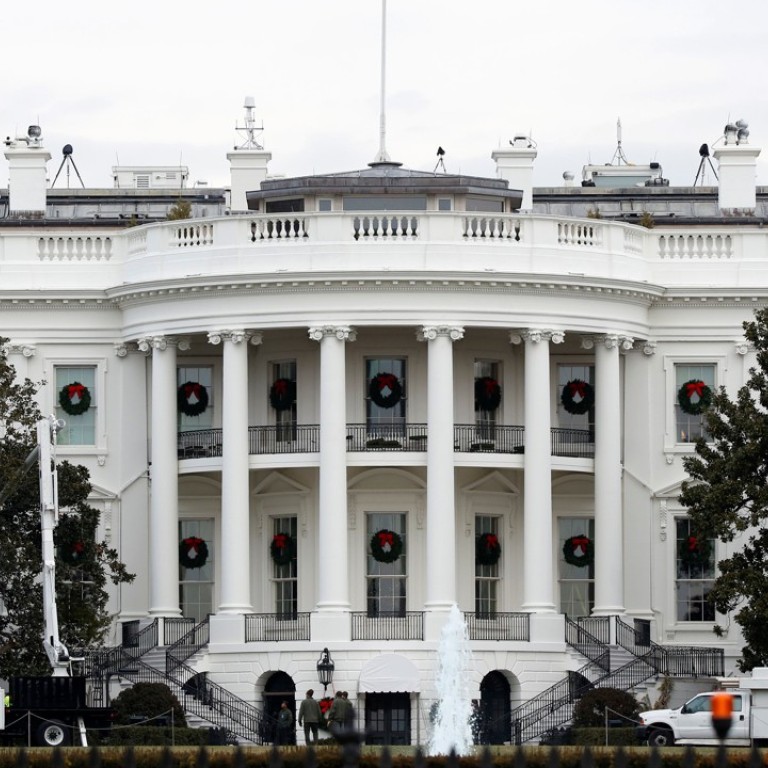
Analysis | ‘There’s homework to be done’: Washington unsure Trump’s team can pull off talks with Kim
Analysts say a lack of experience on North Korea in the White House and State Department threatens to scuttle the landmark negotiations
US President Donald Trump’s high-wire gambit to accept a meeting with North Korean leader Kim Jong-un sets off a scramble among US officials to assemble a team capable of supporting a historic summit of long-time adversaries and determine a viable engagement strategy.
State Department officials, including Secretary of State Rex Tillerson, were downplaying the immediacy of talks in the hours before the White House rolled out the South Korean national security adviser, who made the surprise announcement that Trump would meet Kim.
The apparent lack of coordination marked a pattern of mixed messaging that has characterised the Trump administration’s North Korea diplomacy since Pyongyang launched its first intercontinental missile last year, sparking the Trump White House’s biggest national security crisis so far.
Now the White House has committed to an unprecedented meeting at a time when the administration lacks a fully-staffed cadre of diplomats and advisers.
The US official on North Korea, special envoy Joseph Yun, announced his retirement in late February and has not been replaced. After more than a year, the administration has yet to nominate an ambassador to South Korea. And the Senate has not confirmed the top US diplomat to eastern Asia.
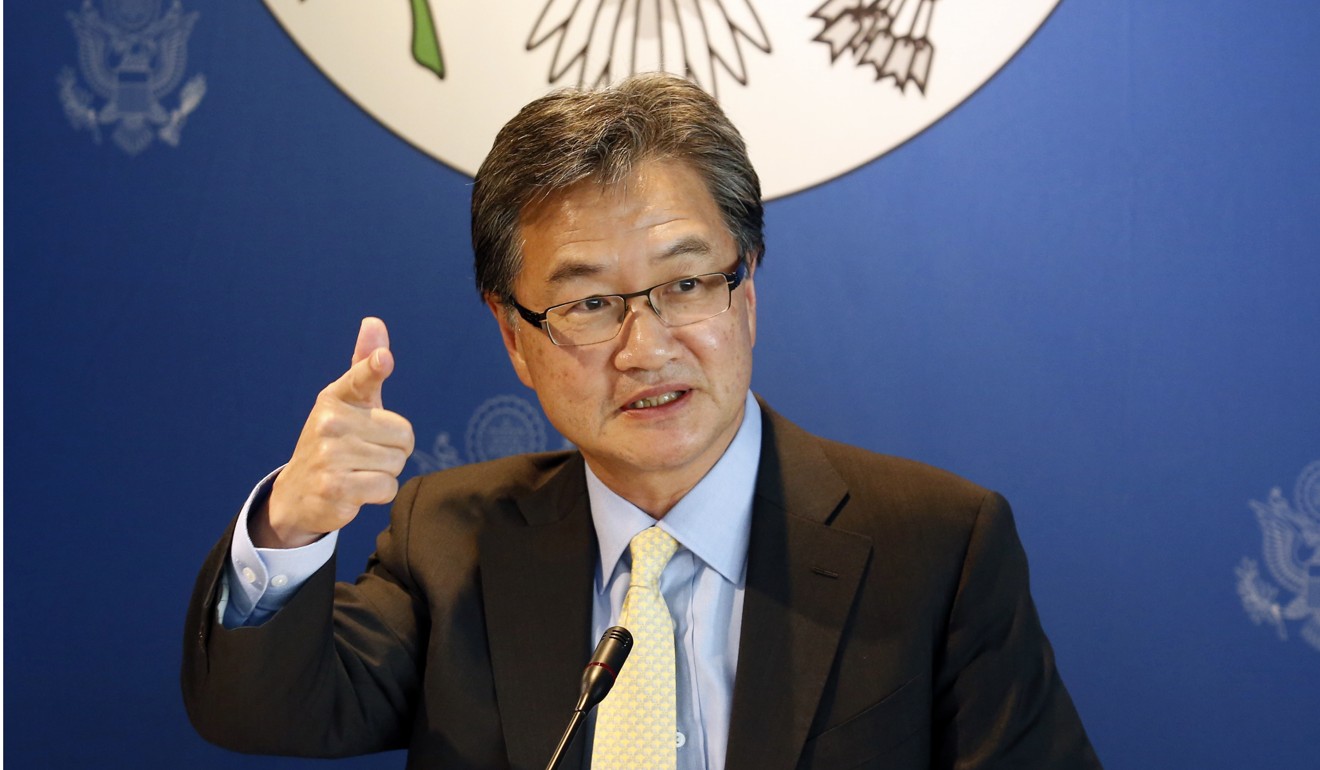
Thursday’s announcement suggested that the White House will be driving the process, but much of the grunt work will go to rank-and-file diplomats.
Hours earlier, Tillerson said there may be no talks at all. “We’re a long way from negotiations. We just need to be very clear-eyed and realistic about it,” Tillerson said. He said he did not yet know whether “the conditions are right to even begin thinking about negotiations”.
The top US diplomat was quickly upstaged by the White House with an announcement that the president himself would meet the North Korean leader.
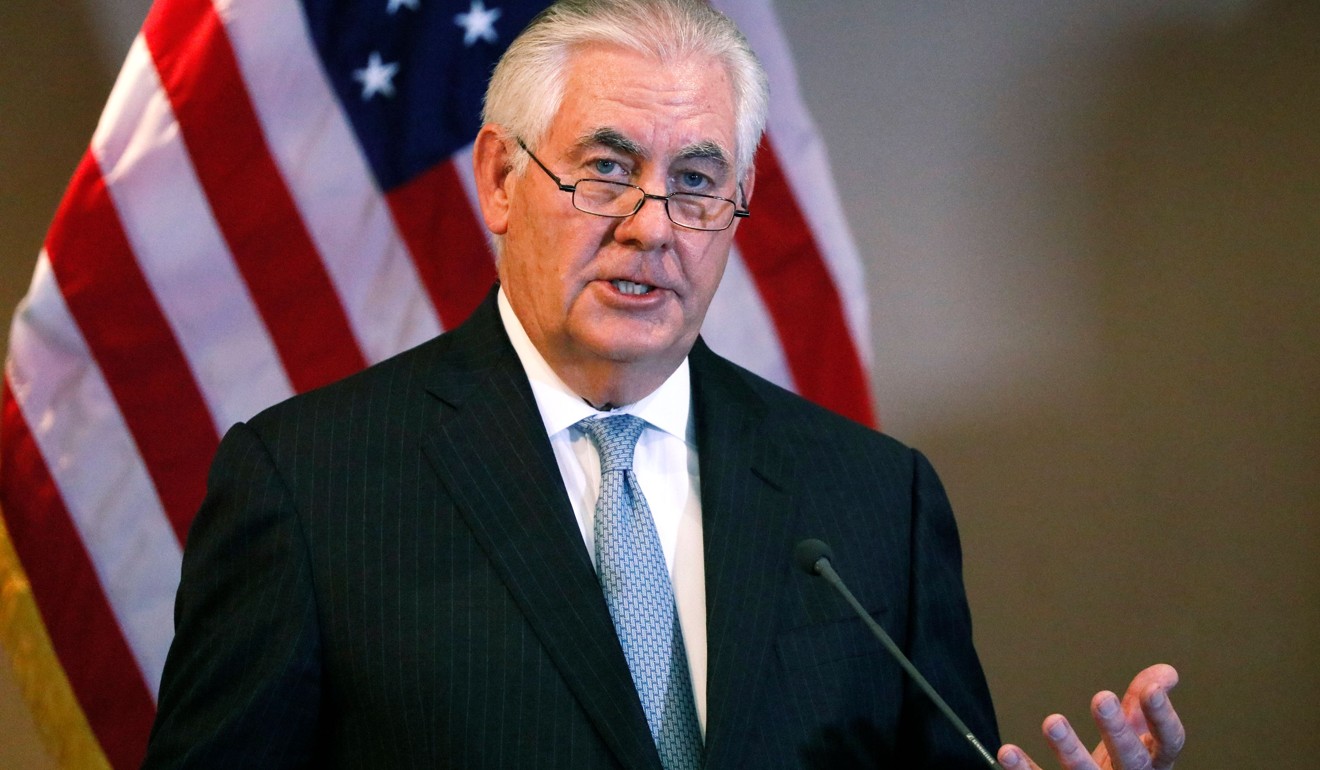
Past negotiators say full-fledged talks would require the United States to have a disciplined process and a team across government agencies working out the nuts and bolts of any agreement. They urged the administration to get ready for such a heavy lift if it was prepared to make a serious attempt.
“It’s going to take time to get this underway under any circumstances. I would get going right away,” said Wendy Sherman, who served as North Korea policy coordinator for the Clinton administration and lead negotiator with Iran during the Obama administration. “When we did the Iran negotiation, we wrote an entire agreement, over 100 pages, before we began the negotiation, so we had a sense of what we were trying to achieve. It was incredibly detailed and incredibly technical. There’s homework to be done.”
It’s going to take time to get this underway under any circumstances ... There’s homework to be done
Washington’s policymakers appeared caught off guard by the announcement. The State Department said earlier in the day that its officials were prepared to engage in a preliminary round of talks to test North Korea’s sincerity but stressed that everything remained in early stages.
Traditionally, talks would require a lead negotiator with gravitas and the trust of both the White House and Congress, who would nail down the details of any agreement over a series of meetings before proposing any summit with the US commander in chief. But Trump has long fashioned himself his own negotiator, potentially rendering past diplomatic playbooks void.
“This is in many ways unprecedented in the sense that this is the first time an American president has accepted an invitation to meet a North Korean leader,” said Daryl Kimball, executive director of the Arms Control Association, a disarmament advocacy group that has been critical of the Trump’s administration’s nuclear weapons policies but cheered his decision to meet North Korea’s leader.
The surprise meeting will put significant strain on the figures who have been working on the North Korea portfolio, including Susan Thornton, the acting assistant secretary of state for East Asian and Pacific affairs, and Mark Lambert, the Korea desk director, both veteran diplomats with significant experience in North Korea diplomacy.
Lambert, who has been involved in six-party talks on North Korea in Beijing in the past, now runs the “New York channel”, a communication link between the United States and North Korea through Pyongyang’s mission at the United Nations.
“We are very comfortable that if the negotiations occur, we will have the best negotiators representing the United States,” said Steven Goldstein, under secretary of state for public diplomacy and public affairs.
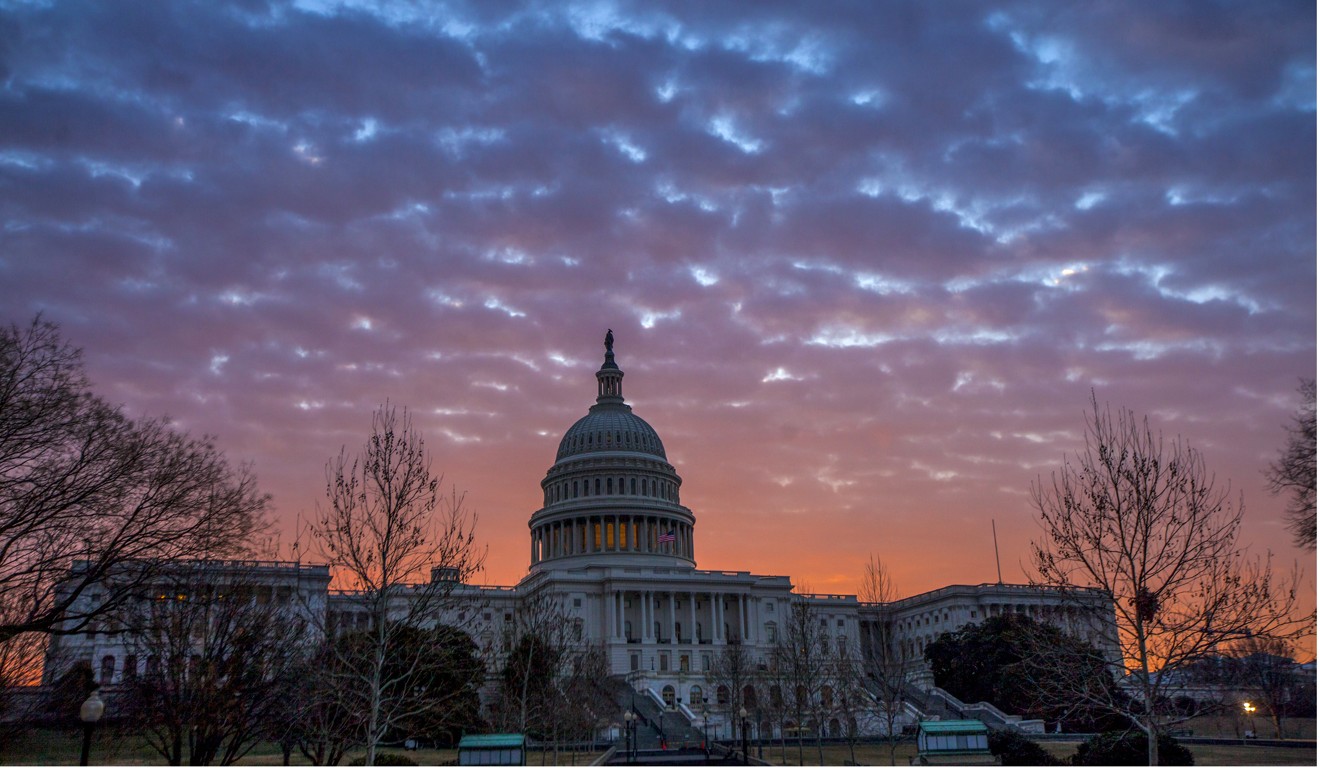
Still, the lack of substantive diplomatic engagement with North Korea during the Obama administration has left a thin bench of people with face-to-face experience dealing with Pyongyang.
Since Trump took office, the ranks of US diplomats and experts have thinned amid beleaguered morale at the State Department.
“The State Department has haemorrhaged Korean linguists and former negotiators,” said Douglas H. Paal, an Asia scholar at the Carnegie Endowment for International Peace. The North Koreans “will send people with 30 years of experience – this is a real challenge”.
Democratic Senator Edward Markey, a long-standing nuclear-disarmament advocate, cheered the president’s decision to engage directly with North Korea but called on the White House to take steps immediately to fill key empty positions and solve funding problems at the State Department to make sure the US government is best prepared to take on the task.
“As we embark on one of the most crucial diplomatic negotiations in recent history, I urge President Trump to empower his diplomats to sustain momentum and provide expertise,” Markey said. “Any negotiation with North Korea will only succeed if it draws upon the collective expertise, experience, and credibility of a fully resourced and staffed State Department. Diplomacy is a team sport, bigger than any individual.”
The White House could hire a top negotiator from outside government to help lead the negotiations, a US official said, declining to name the possible candidates.
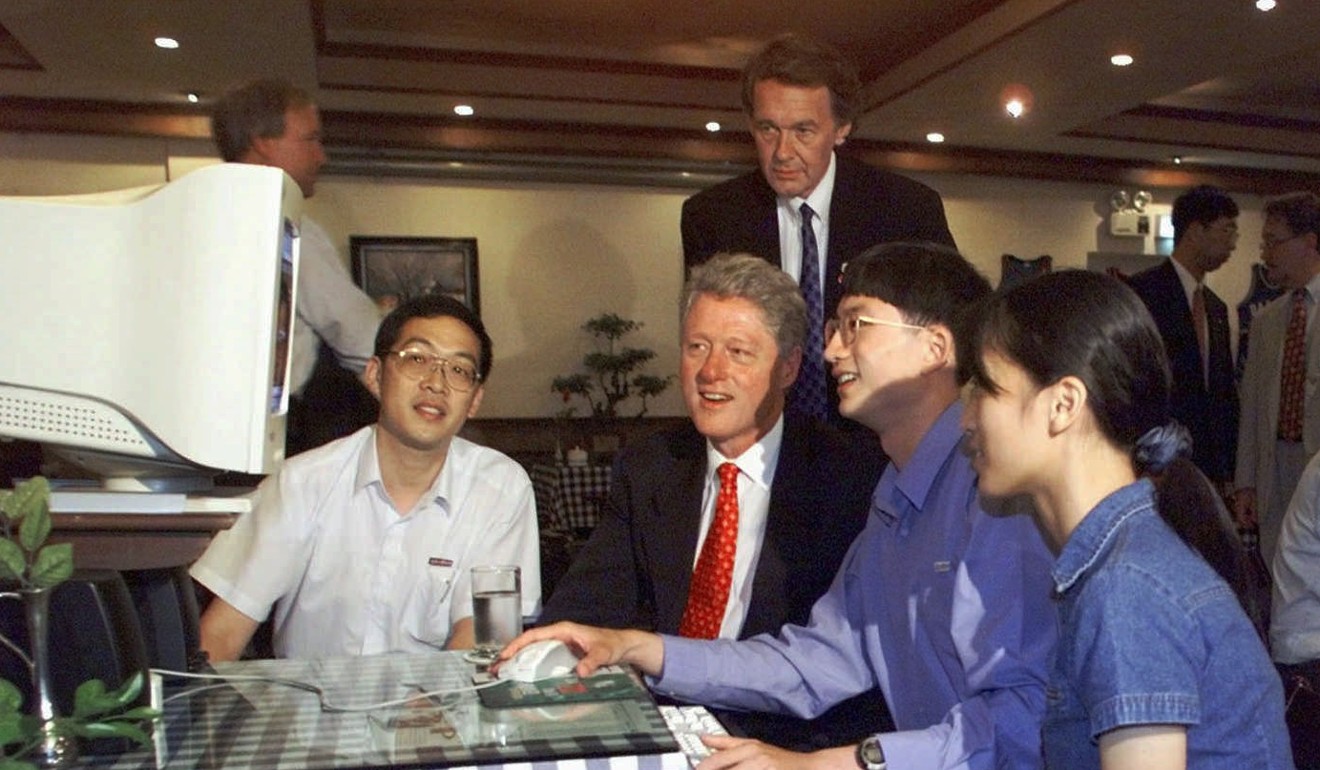
Former president Bill Clinton, for example, tapped his ex-secretary of defence William Perry to oversee a North Korea policy review mandated by the Republican-led Congress in the late 1990s, and Perry then led negotiations with Pyongyang in the final days of the Clinton administration. At one point, Clinton administration officials discussed the idea of Bill Clinton going to North Korea himself, but no such summit ever materialised.
Dating back to the Soviet era, the task of striking disarmament accords has been in part the result of political will but also a product of painstaking negotiations over the details. That work traditionally has drawn on experts from across the government, including the Department of Energy, the Department of defence and the intelligence community, in addition to the State Department.
Bruce Klingner, a former US intelligence specialist on Korea who is now a senior research fellow at the Heritage Foundation, said any agreements with the North Koreans must be based on a clearly delineated text that is prepared ahead of time, with robust verification mechanisms such as “short-notice challenge inspections” of non-declared nuclear facilities.
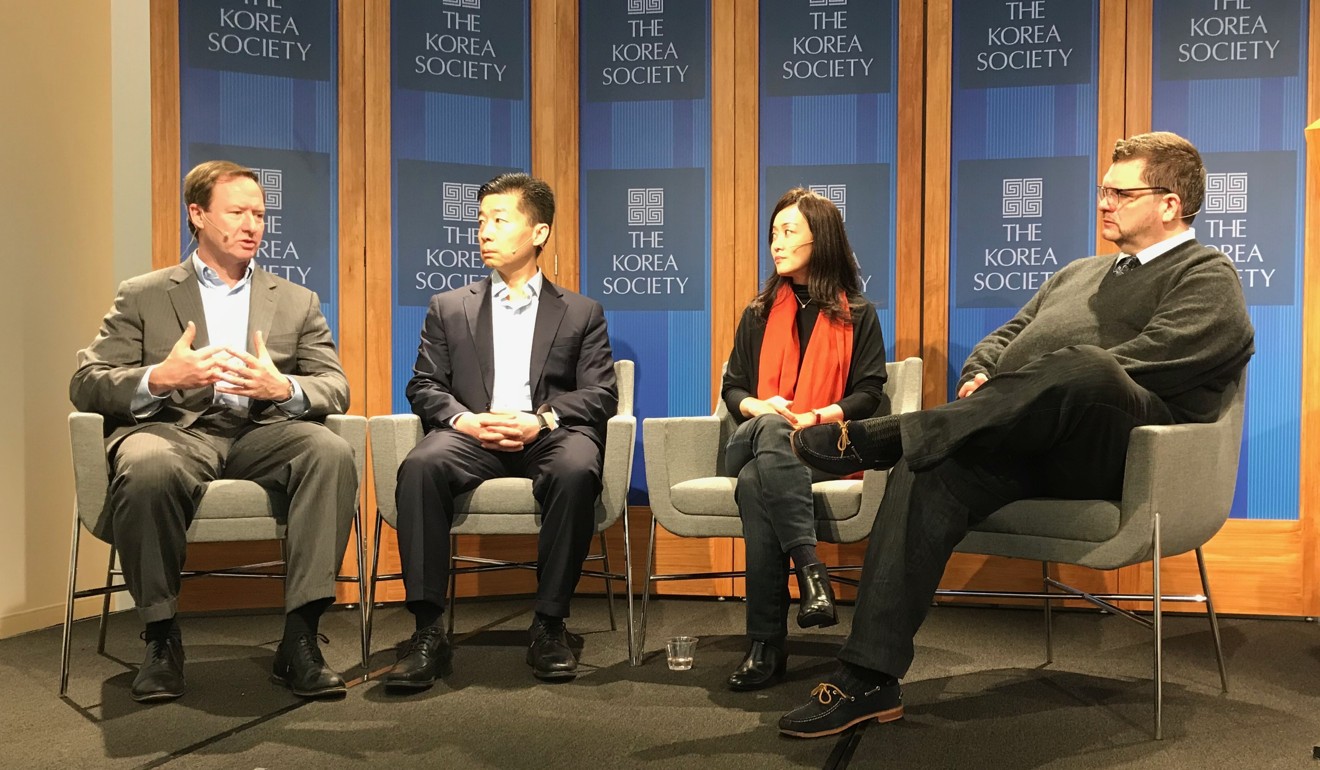
Whether any such plans or texts will be worked out ahead of Trump’s meeting with Kim remains unclear. The South Korean administration of President Moon Jae-in has taken a top-down approach to diplomacy with North Korea, establishing high-level connections before working out details.
People with experience negotiating with North Korea are unsure whether US officials will find that Kim wants to give up his nuclear weapons.
“I think they will be disappointed in that,” said Robert Einhorn, a senior fellow at the Brookings Institution who conducted negotiations with the North Koreans as a senior US diplomat in the Clinton administration. “I doubt he has any intention of giving up nuclear weapons.”
Still, many say engagement is worth a try, because geopolitical conditions have changed, not only owing to the advancement of North Korea’s nuclear and missile programme but also because of Trump.
“We can be suitably sceptical,” Klingner said. “[But] the conditions have changed so that it is worth going back to the rodeo again.”

